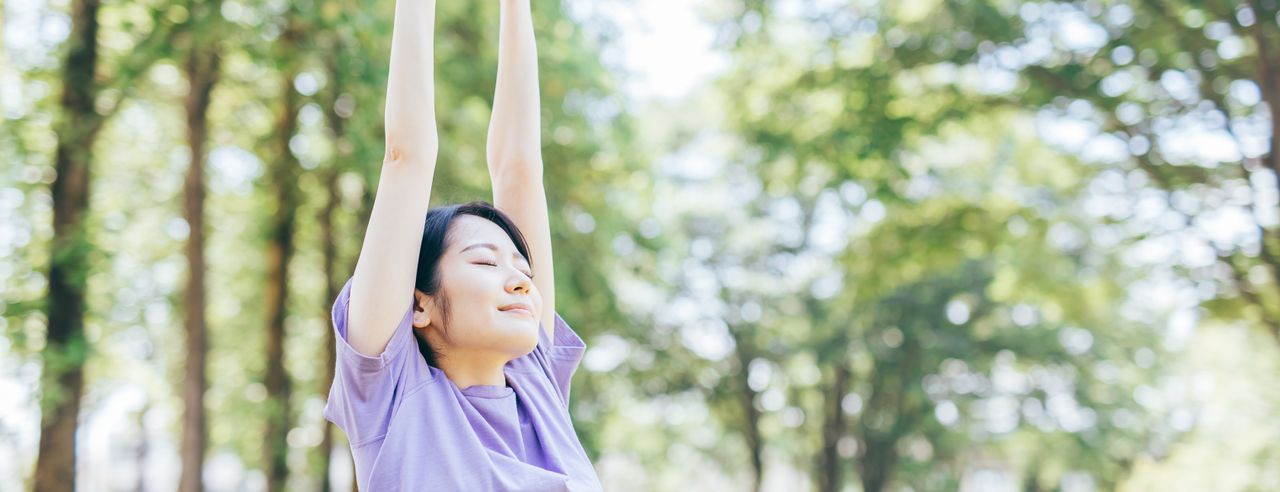
Study on the effect of short-term climatotherapy in Japan
Hitomi Kanayama et al.
August 2017
Climate treatment
Twenty-nine urban residents participated in a half-day climatotherapy program in a temperate mountainous region and a lowland area in the northwest of the main island of Japan. The aim of this prospective pilot study of the University of Fukui with a one-time intervention was to investigate the objective and subjective physical and psychological effects of the short program.
During the terrain treatment on an ascending mountain trail , blood pressure dropped significantly and returned to normal after fresh air rest therapy, while no significant changes were observed on the flat lowland trail during the course of the program. Heart rate rose and fell significantly in both areas, with the changes being more pronounced on the mountain trail.
The Japanese short version of the "Profile of Mood States" (POMS) was used before and after the half-day program. The age-adjusted T-scores of the negative subscales "tension-anxiety", "depression", "anger-hostility", "fatigue" and "confusion" were significantly lower after the climatotherapy at both locations. In contrast, there was no significant change in the "vitality" score.
This short climatotherapy program was designed for people who do not have enough time for a longer stay at a resort town. The results show that the half-day climatotherapy program helps to improve mood. In addition, repeated treatment of the program, especially endurance training on ascending paths, can be expected to normalize blood pressure and reduce heart rate both in everyday life and during physical activity. Health benefits can therefore be derived from this climatotherapy program.
The most important information on the study at a glance
- Indications
- Blood pressure, depression
- Institution
- Environmental Health, Department of International Social and Health Sciences, Faculty of Medical Sciences, University of Fukui, 23-3 Matsuoka Shimoaizuki, Eiheiji-cho, Yoshida-gun, Fukui, 910-1193, Japan
- Title
- Study on the effect of short-term climatotherapy in Japan
- Brief description
- The study shows that climatotherapy in the mountains lowers blood pressure, changes the heart rate and improves mood.
- Original title
- Climatotherapy in Japan: a pilot study
- Link to the study
- https://pubmed.ncbi.nlm.nih.gov/28779303/
Suitable trips for this study topic
You might also be interested in
Climate treatment
Respiratory system / Asthma
I. E. Berest
January 2020
The study shows: Halotherapy improves nasal patency, reduces swelling and promotes healing in rhinitis.
Climate treatment
Matteo Gelardi et al.
August 2013
The study shows: Aerosal halotherapy reduces tonsil enlargement and hearing loss in adenotonsillar hypertrophy.
Climate treatment
Respiratory system / Asthma
Magdalena Kostrzon et al.
January 2015
The study shows that subterraneotherapy significantly improves asthma control.